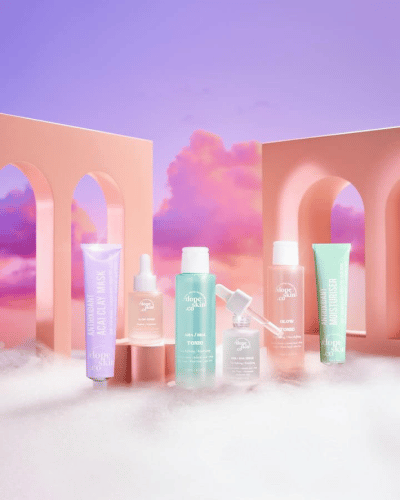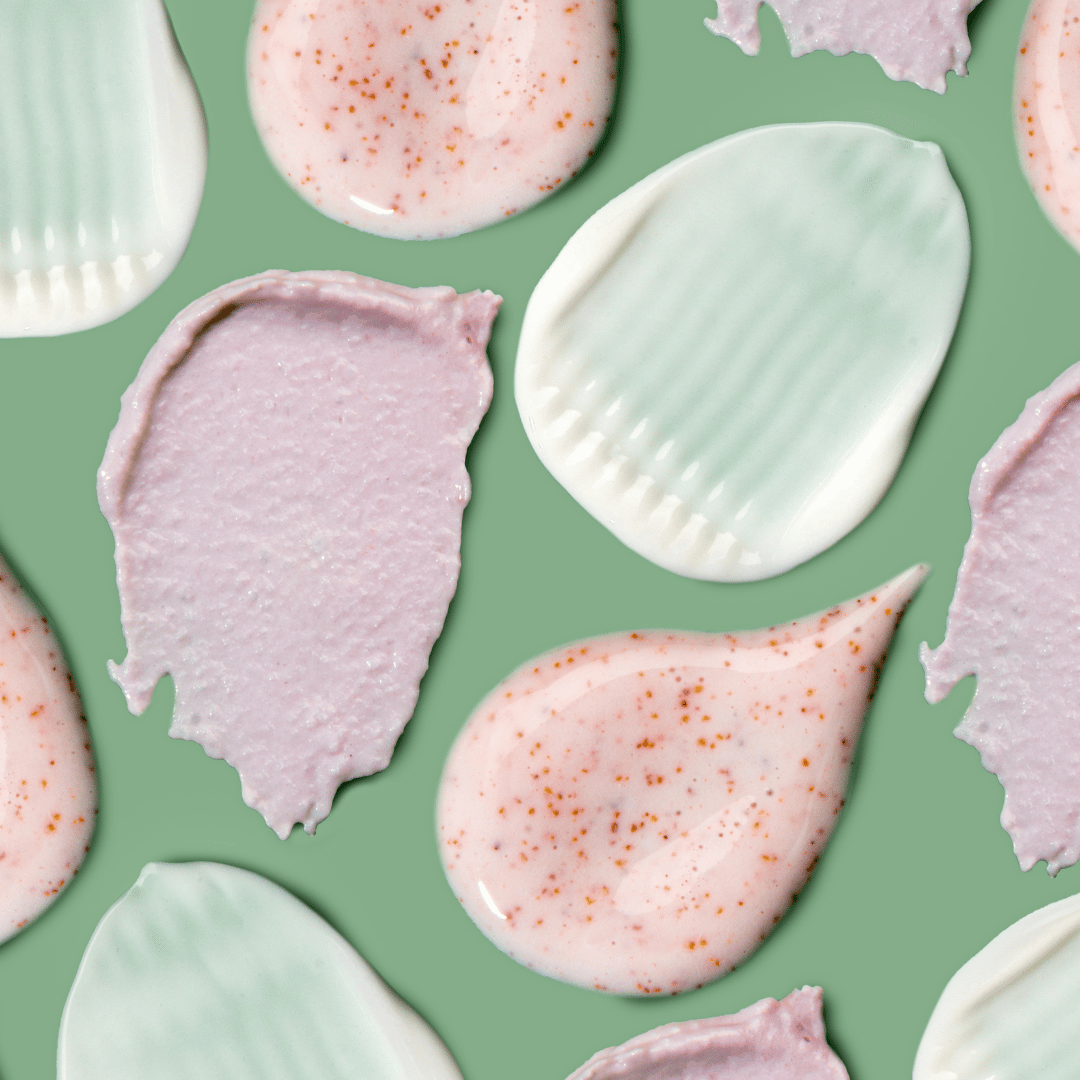Aloe Vera (Aloe Barbadensis)
Everything You Need to Know About Aloe Vera: The Miracle Plant for Your Skin
Aloe vera, often dubbed the “miracle plant,” has been cherished for centuries for its remarkable healing properties and skincare benefits. From soothing sunburns to moisturising dry skin, aloe vera is a versatile ingredient found in many skincare products. Let’s delve into the world of aloe vera and discover why it deserves a place in your skincare routine.
Don't have time to read the whole thing, get the TL;DR: Everything You Need to Know About Aloe Vera
Aloe vera is a versatile skincare ingredient celebrated for its soothing, hydrating, and healing properties. Rich in vitamins, minerals, amino acids, and antioxidants, it offers benefits like soothing sunburns, fighting acne, reducing signs of ageing, and relieving skin irritations. Widely used in history and now a staple in many skincare products, aloe vera is suitable for all skin types. Discover its extensive benefits and the science behind it in this comprehensive guide.
What is Aloe Vera?
Aloe vera is a succulent plant that belongs to the Liliaceae family. It grows in tropical climates and is known for its thick, fleshy leaves filled with a clear gel. This gel is rich in vitamins, minerals, amino acids, and antioxidants, making it a powerful ally for skin health.
Historical Uses of Aloe Vera
Aloe vera has a long history of medicinal and cosmetic use. Ancient Egyptians referred to it as the “plant of immortality” and used it in their beauty rituals. Cleopatra is said to have included aloe vera in her daily skincare routine. The Greeks and Romans used it to treat wounds, while traditional Chinese medicine valued its healing properties.
Benefits of Aloe Vera for Skin
-
Soothes Sunburn: Aloe vera is widely known for its ability to soothe and heal sunburned skin. Its anti-inflammatory properties help reduce redness and swelling, providing immediate relief. A study published in the Journal of Clinical, Cosmetic and Investigational Dermatology found that aloe vera significantly improved the healing process of sunburned skin .
-
Moisturises Skin: Unlike typical moisturisers, aloe vera gel doesn’t leave a greasy film on the face and skin. It hydrates the skin, making it a great option for those with oily or acne-prone skin. Research in the Indian Journal of Dermatology supports aloe vera's effectiveness in improving skin hydration and elasticity .
-
Heals Wounds and Burns: Aloe vera accelerates the healing process of minor cuts and burns. Its antibacterial properties help prevent infection, while its compounds promote skin regeneration. A review in the Wounds journal highlighted aloe vera's efficacy in promoting wound healing and reducing healing time .
-
Fights Acne: Aloe vera contains salicylic acid and other antiseptic compounds that kill acne-causing bacteria. It also helps reduce inflammation and redness associated with acne. A study in the Journal of Dermatological Treatment showed that aloe vera gel, combined with other treatments, effectively reduced acne lesions .
-
Reduces Signs of Ageing: The antioxidants in aloe vera, such as vitamins C and E, help combat free radicals that contribute to ageing. Regular use can diminish the appearance of fine lines and wrinkles. Research in the Annals of Dermatology demonstrated that aloe vera supplementation improved skin elasticity and reduced wrinkles in photoaged skin .
-
Lightens Blemishes: Aloe vera can help reduce the appearance of dark spots and hyperpigmentation. Its natural skin-lightening properties promote an even skin tone. A study in the Journal of Chemical and Pharmaceutical Research found that aloe vera gel significantly reduced melanin content, leading to lighter skin .
-
Relieves Skin Irritations: Conditions like eczema and psoriasis can benefit from aloe vera’s soothing and anti-inflammatory effects. It helps calm itching and irritation. A clinical trial published in the International Journal of Phytotherapy and Phytopharmacology showed that aloe vera cream was effective in treating mild to moderate psoriasis .
The Nutritional Powerhouse of Aloe Vera Gel
Aloe vera gel is packed with a variety of nutrients that contribute to its effectiveness in skincare:
- Vitamins: Aloe vera contains vitamins A (beta-carotene), C, and E, which are antioxidants that help neutralise free radicals. It also contains vitamin B12, folic acid, and choline, which are essential for healthy skin function and regeneration.
- Minerals: The gel is rich in minerals like calcium, magnesium, zinc, chromium, selenium, sodium, iron, potassium, copper, and manganese. These minerals are vital for various enzymatic reactions and skin health.
- Amino Acids: Aloe vera provides 20 of the 22 essential amino acids, including 7 out of the 8 essential amino acids that the human body cannot produce. These amino acids are the building blocks of proteins and are essential for tissue repair and growth.
- Enzymes: Aloe vera contains enzymes such as amylase and lipase, which can help break down sugars and fats on the skin, promoting smoother and healthier skin.
- Sugars: Aloe vera gel includes both monosaccharides (glucose and fructose) and polysaccharides (glucomannans/polymannose), which contribute to its hydrating and anti-inflammatory properties.
- Fatty Acids: Aloe vera contains fatty acids such as campesterol, cholesterol, β-sitosterol, and lupeol, which have anti-inflammatory, antiseptic, and analgesic properties.
- Hormones: Auxins and gibberellins are hormones found in aloe vera that aid in wound healing and have anti-inflammatory effects.
- Anthraquinones: Compounds like aloin and emodin act as analgesics, antibacterials, and antivirals.
- Lignin: This allows aloe vera to penetrate the skin deeply, delivering its nutrients more effectively.
- Saponins: These are soapy substances that exert cleansing and antiseptic action on the skin.
Incorporating Aloe Vera into Skincare Formulations
At Dope Skin Co., we harness the power of aloe vera by incorporating it into our various skincare formulations. Its soothing and hydrating properties enhance the effectiveness of our products, ensuring your skin receives the best care possible.
FAQs About Aloe Vera
1. Is aloe vera suitable for all skin types?
Yes, aloe vera is suitable for all skin types. It is especially beneficial for sensitive, dry, and acne-prone skin due to its soothing, hydrating, and anti-inflammatory properties.
2. Can aloe vera help with acne?
Yes, aloe vera can help with acne. It contains salicylic acid and antiseptic compounds that kill acne-causing bacteria and reduce inflammation and redness associated with acne.
3. How does aloe vera help with sunburn?
Aloe vera soothes sunburn by reducing redness and swelling due to its anti-inflammatory properties. It also hydrates the skin, which aids in the healing process.
4. Can aloe vera be used daily?
Yes, aloe vera can be used daily. Its gentle and hydrating properties make it suitable for everyday use without causing irritation.
5. Does aloe vera help with anti-ageing?
Yes, the antioxidants in aloe vera, such as vitamins C and E, help combat free radicals that contribute to ageing. Regular use can reduce the appearance of fine lines and wrinkles.
6. How can I tell if a product contains high-quality aloe vera?
Look for products that list aloe vera as one of the main ingredients and have a high percentage of pure aloe vera. Avoid products with added fragrances, alcohol, or artificial colours, as these can irritate the skin.
Conclusion
Aloe vera is a true skincare powerhouse, offering a myriad of benefits for various skin concerns. Its natural, gentle properties make it suitable for all skin types. Whether you’re looking to soothe sunburn, fight acne, or simply keep your skin hydrated, aloe vera is a versatile ingredient that can enhance your skincare routine.
Experience the magic of aloe vera with Dope Skin Co. products and let your skin thank you!
References
- Saeed, S., & Mahmood, T. (2016). Aloe vera: A Plant for Many Uses. Journal of Clinical, Cosmetic and Investigational Dermatology, 9, 193-204.
- Surjushe, A., Vasani, R., & Saple, D. G. (2008). Aloe vera: A short review. Indian Journal of Dermatology, 53(4), 163-166.
- Heggers, J. P., Pelley, R. P., & Robson, M. C. (1993). Beneficial effect of aloe on wound healing in an excisional wound model. Wounds, 5(3), 54-59.
- Hajheydari, Z., Saeedi, M., Akbari, J., & Shokoohi, L. (2014). Combination of aloe vera gel and tretinoin cream in treatment of mild and moderate acne vulgaris: a randomized controlled trial. Journal of Dermatological Treatment, 25(2), 123-129.
- Kim, K., Kim, H., Kwon, S., Kim, M., & Kim, S. (2009). Efficacy of oral aloe vera supplementation in adults with photoaged skin: a double-blind, randomized, placebo-controlled trial. Annals of Dermatology, 21(3), 285-294.
- Athiban, P. P., Borthakur, B. J., Gnanasekaran, T. S., & Kumar, M. (2012). Evaluation of antimicrobial efficacy of Aloe vera and its effectiveness in decontaminating gutta percha cones. Journal of Chemical and Pharmaceutical Research, 4(1), 162-168.
- Paulsen, E., Korsholm, L., & Brandrup, F. (2005). A double-blind, placebo-controlled study of a commercial aloe vera gel in the treatment of slight to moderate psoriasis. International Journal of Phytotherapy and Phytopharmacology, 12(6), 505-512.



